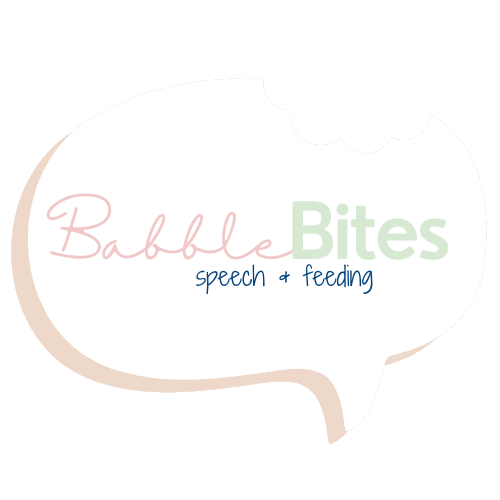How Many Words Should My Child Be Saying?
Pediatricians will begin to ask how many words your child is saying to help make sure their development is on track.
This is a common question you may be asking yourself, especially leading up to check-ups with the pediatrician, as they will commonly begin to ask how many words your child is saying around 12 months of age. It’s important for parents to understand that there is a huge range of what is considered “on track” between 12-24 months of age. You may also be wondering, “What even counts as a word at this age?” Click here to find out. You may be surprised to learn that animal sounds, word approximations, and exclamations like “uh-oh,” all count as words at this age.
When we look at how many words your child should be saying, there are two different numbers to be aware of: the milestone, and the average.
The milestone is what most, or approximately 75-90% of children are able to do at a certain age, while the average is what half, or 50% of children are able to do (meaning half of children are able to use more words than this, and half use less). This is why you may come across very different numbers when researching, “How many words should my child be saying?” Many sources, such as the CDC and AAP provide language milestones. What this means, however, is that although a child has met the milestone (what most, or 75-90% of children are able to do by a certain age) their language may still be considered delayed, or below the average range. Most speech-language pathologists look to see if your child is below the average range (the average range is what 25-75% of children are able to do at a certain age, with 25% falling below the average range, and 25% falling above the average range) when determining if a child requires speech-language therapy.
Check out the chart below to see how many words children have at 12, 18, 24, and 36 months, according to developmental milestones, and averages:
Derived from standardized norms from The MacArthur-Bates Assessment (2007).
What should I do if my child isn’t saying enough words?
While number of words is certainly not the only factor considered when recommending therapy, it is an important component that is taken into account. If your child has met the the number of words milestone for their age, as well as other language milestones, and is making steady gains, try implementing these early language strategies (increasing babbling, narration, verbal routines, cloze statements, verbal choices), and consider a speech-language evaluation if you have concerns.
If your child has not yet met the milestones for their age, or has just met the number of words milestone and is not making steady gains, in addition to implementing early language strategies, reach out to your pediatrician for a referral to a speech-language pathologist. If your child has just barely met the milestone for number of words (or has not met it yet), this means your child is likely at or below the 25th percentile, or below the average range. If you are concerned about your child’s speech and language development, it’s important to get an evaluation with a speech-language pathologist. Early intervention has been proven to have better outcomes than the outdated “wait and see” approach, so speak to your pediatrician if you are concerned. Every state has a state-funded early intervention program, although these programs can be difficult to qualify for. If you are still concerned, you can reach out to a private practice in your area.
For strategies you can start implementing today to help increase your child’s language development, click here, here, and here, and follow us on Instagram for “bite-sized” information on language strategies:
This website and information on this blog post is provided for educational purposes only. It is not meant as medical advice, intended to replace a speech-language assessment, therapy from a speech-language pathologist, or serve as medical care for a child. It is recommended that you discuss any concerns or questions you might have with your speech-language pathologist, pediatrician, and medical team, and develop an individualized team plan specifically for your child.
Click below to pin this post to Pinterest to save for later and share!



